Northern lights set the sky aglow amid powerful geomagnetic storm
Millions of Americans were able to see the magical glow of the northern lights on Friday night when a powerful geomagnetic storm reached Earth.
The northern lights, also known as the aurora borealis, were predicted to be visible as far south as Alabama and Northern California. People reported seeing the lights as far south as Florida and Oklahoma.
Some areas, like New York City, were impacted by cloud cover and missed out on the spectacular show, but the phenomenon is expected to last through the weekend and possibly into next week. Experts said the aurora borealis will likely be visible in some parts of the U.S. Saturday night, with the best chance to see the northern lights between 10 p.m. Saturday and 2 a.m. Sunday.
"The aurora is when we get energized particles that have left the sun in more quantities than usual, and they interact with Earth's magnetic barrier," Shawn Dahl, senior space weather forecaster for the National Oceanic and Atmospheric Administration, explained to CBS News.
The geomagnetic storm reached Earth Friday evening as an "extreme" G5, according to the NOAA's Space Weather Prediction Center. Geomagnetic storms are ranked from G1 to G5.
"This one is pretty large, It think it's pretty extreme, we got to the G5, which is the highest in terms of strength," said Dr. Nour Rawafi, an astrophysicist with the Johns Hopkins Applied Physics Laboratory.
It marks the first G5 geomagnetic storm to reach Earth since October 2003. A G5 is so large it can disrupt satellites we rely on for communications and GPS. Elon Musk's Starlink satellites were reporting "degraded service."
Dahl explains a G5 storm can potentially disrupt the GPS we use on our phones.
"It could, because most of our phones are single-frequency GPS systems," Dahl said.
The aurora borealis has the capacity to impact power grids and cause blackouts. In 2003, the G5 storm caused some power outages in Sweden and damaged transformers in South Africa, according to the NOAA. This year, however, utility companies took precautions.
"It seems like, this time around, certain steps were taken, and we avoided that so far," Rawafi said.
Photos of the northern lights
Photographers and videographers nationwide captured images that show the northern lights streaking the sky in shades of blue, green, and even purple.
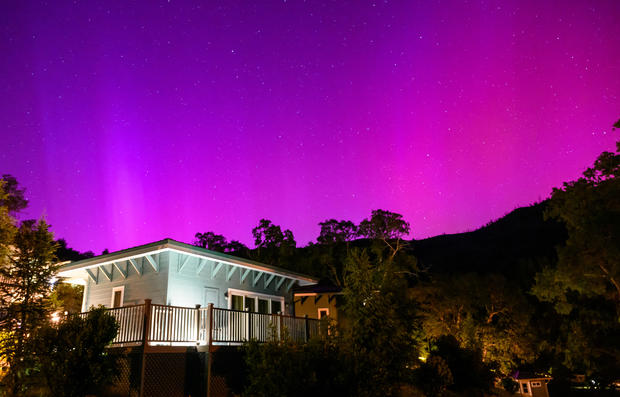
The northern lights could also be photographed from the air, with photos of the phenomenon from airplane windows circulating on social media.
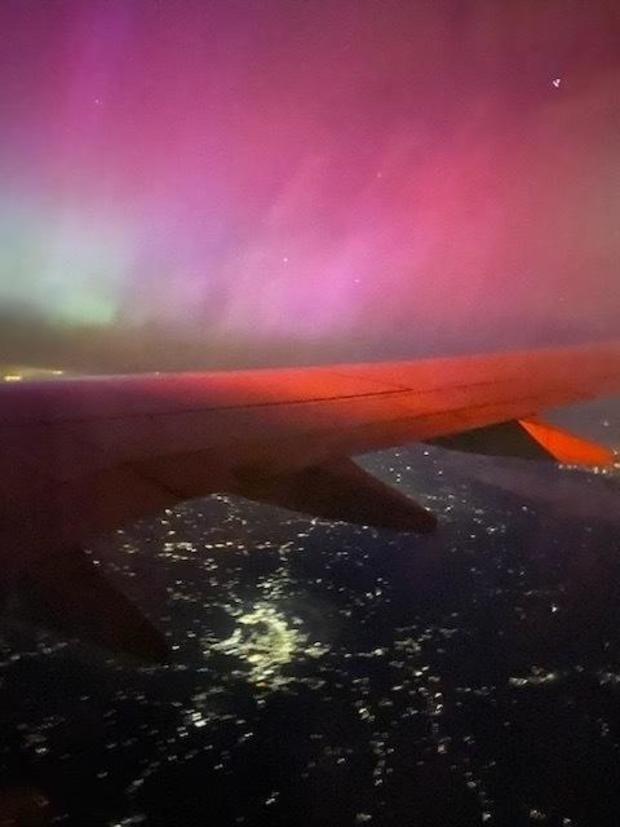
Even in places where the northern lights could only be seen faintly with the naked eye, photographs captured stunning details.
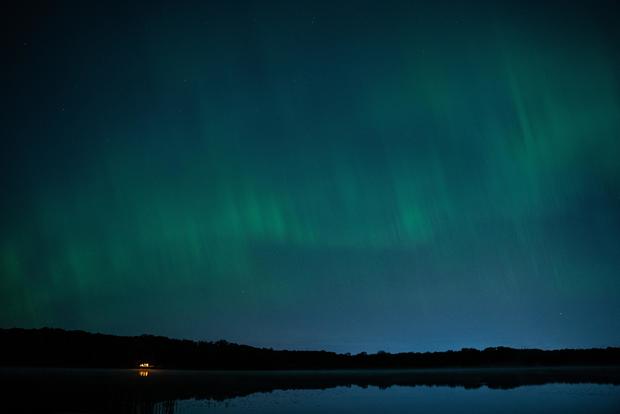
Northern lights predictions for the rest of the weekend
If you missed the northern lights on Friday night, there are still some chances to catch the phenomenon again. The geomagnetic storm is expected to last through the weekend.
The NOAA Space Weather Prediction Center released a forecast map for Saturday night suggesting that the lights would be visible in parts of Washington, Idaho, Montana, North Dakota, Minnesota and more.
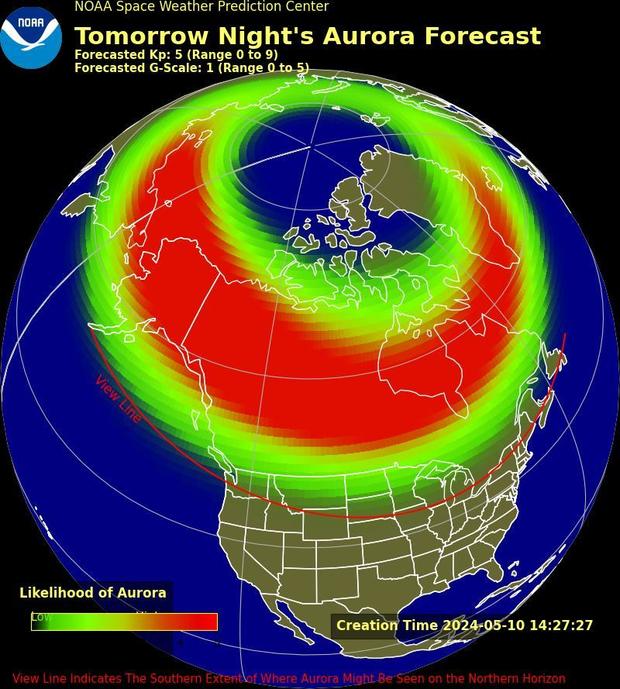
Though the lights will be more limited, don't despair if your area isn't illuminated on the map. It's possible to observe the northern lights from as far as 620 miles away, according to the National Weather Service. And remember, a camera can help pick up details that the naked eye might otherwise miss.
What's the best way to see the northern lights?
The National Weather Service's St. Louis office said that people who want to see the northern lights should get away from light pollution and cloud cover.
"Get away from city lights into a dark, rural surrounding and look north," the office said on social media on Friday morning.
Northern Lights around the world
The U.S. wasn't the only place to see incredible light shows on Friday. In the United Kingdom, the phenomenon was seen as far south as London and southern England.
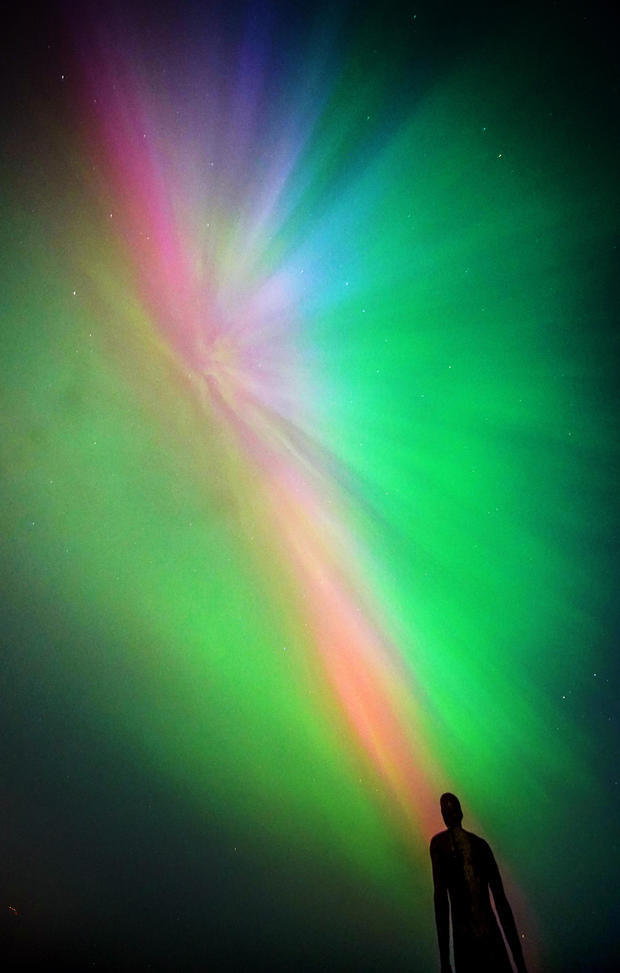
In parts of Germany, the entire sky appeared to be lit pink at times.
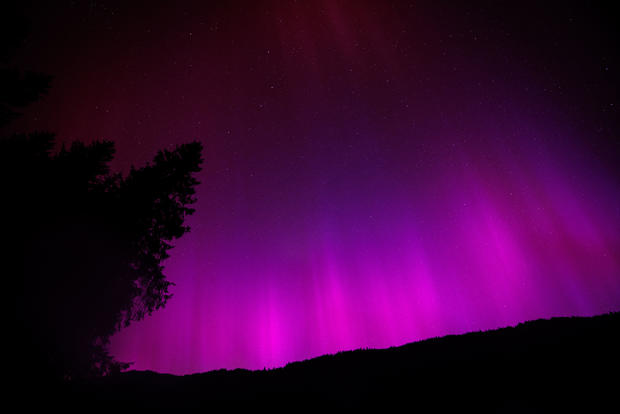
Other incredible images showed the sky over Austria lit in blue, green, and pink, with stunning photos catching them over the country's mountains.
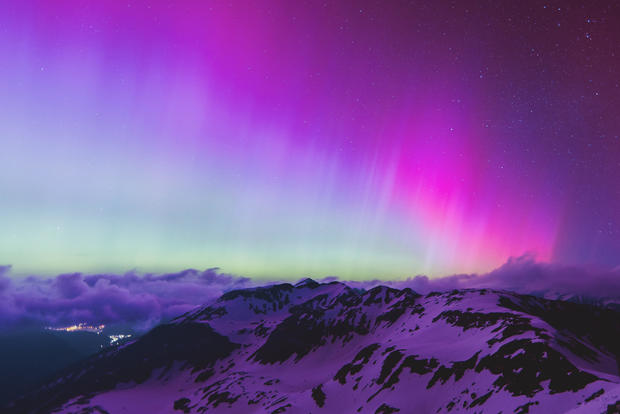
— Michael George contributed to this report.
- In:
- Weather Forecast
- Aurora Borealis
- Northern Lights
Kerry Breen is a reporter and news editor at CBSNews.com. A graduate of New York University's Arthur L. Carter School of Journalism, she previously worked at NBC News' TODAY Digital. She covers current events, breaking news and issues including substance use.
TwitterDisclaimer: The copyright of this article belongs to the original author. Reposting this article is solely for the purpose of information dissemination and does not constitute any investment advice. If there is any infringement, please contact us immediately. We will make corrections or deletions as necessary. Thank you.





